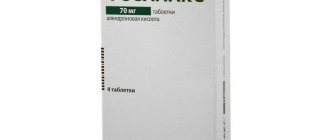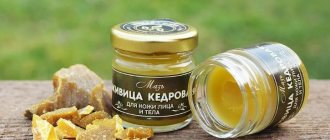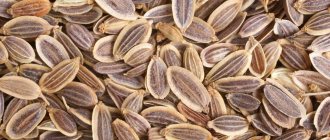During their lifetime, almost every person faces such a problem as cystitis. The disease is accompanied by abdominal pain during urination. In addition, pain may also occur in the lumbar region. One of the signs of cystitis is frequent urination.
In this case, many patients are prescribed Phytosilin, but not all have the opportunity to purchase it, since the price is quite high. Therefore, people are often looking for what they can replace Phytolysin with.
Phytolysin - cheap analogues (list)
- Canephron - from 500 rubles;
- Uronephron – from 250 rubles;
- Blemaren – from 1500 rubles;
- Phytolit – from 200 rubles;
- Citrokas - from 330 rubles;
- Cyston - from 400 rubles;
- Uralite – from 1300 rubles;
- Renel – from 450 rubles;
- Rowatinex – from 1300 rubles;
- Urolesan - from 340 rubles.
For comparison, the price of phytolysin:
[t_price foo=”phytolysin”]
About the drug
Phytolysin is a Polish product and is intended for the treatment of urological diseases. The use of Phytolysin promotes the treatment of inflammatory and infectious diseases of the urinary system.
The medicine is sold in the form of a paste, with which you can prepare a suspension and take it orally. The composition consists of five active components, among which are medicinal herbs and essential oils. Tablets are available in various dosages. Detailed information about phytolysin can be found in the instructions. The price of the tablets is approximately 400 rubles.
Analogues of Phytolysin
There are cases when, for certain reasons (intolerance to components, age under 18 years, lack of drug in pharmacies or financial difficulties), it is necessary to choose another drug. The question arises - what to replace Phytolysin with? Replacement is possible with drugs that have similar pharmacological actions. Analogs can be of plant or synthetic origin.
The table shows prices of Phytolysin analogues and producing countries
| Analogue | Price, in rubles | Manufacturer country |
| Phytolysin | 393-416 | Poland |
| Phytolysin Nephrocaps | 454-543 | Poland |
| Phytolysin Prenatal | 393-406 | Poland |
| Urolesan | 338-410 | Ukraine |
| Nephrosten | 323-384 | Russia |
| Phytonephrine | 223-405 | Russia |
| Fitolesan | 299 | Russia |
| Cyston | 388-394 | India |
| Nephrolysin | 319-397 | Russia |
| Monural | 317-757 | Italy |
| Furadonin | 93-195 | Latvia |
| Nolitsin | 209-349 | Slovenia |
| Canephron | 450-504 | Germany |
Furadonin
Manufacturer: Olainfarm, Latvia
Release form: tablets
Active ingredient: nitrofurantoin
Furadonin is an imported synthetic cheap analogue of Phytolysin in tablets. Refers to antibacterial drugs. It is used for diseases of the urinary system aggravated by bacterial infection. The course of therapy lasts 5–8 days. Furadonin is approved for children from the age of 12, with dosage calculated by weight.
Nolitsin
Manufacturer: KRKA, Slovenia
Release form: tablets
Active ingredient: norfloxacin
Synonyms: Norfloxacin, Norbactin
Phytolysin substitute Nolitsin is an antibiotic of the fluoroquinolone group. It has a wide spectrum of antimicrobial effects on genitourinary and intestinal infections. By destroying the DNA chain of bacteria, Nolitsin leads to their death, provided that the course of therapy is fully completed. The duration of treatment is at least one week, sometimes two. Not prescribed before age 18. It is a cheap analogue of Phytolysin.
Monural
Manufacturer: Zambon S.p.B., Italy
Release form: powder
Active ingredient: fosfomycin
Synonyms: Phosphoral, Ecomural, Fosfomycin
Monural, an analogue of Phytolysin for cystitis, copes well with pathogenic microorganisms of the urinary system. Has antibacterial properties. Prescribed for bacterial urinary tract infections, also in pregnant women with bacteriuria and in the postoperative period.
Available in granules of 2 and 3 g for preparing a solution. Monural in a dosage of 2g is allowed for children from 5 years of age.
The course of treatment is the shortest compared to analogues. A one-time dose is sufficient; in case of a complicated course of the disorder, repeat every other day.
Phytonephrine
Manufacturer: Mirrolla, Russia
Release form: paste, capsules
Active ingredient: mixture of herbal extracts and essential oils
On the pharmaceutical market, Phytonephrine appears to be a cheap analogue of Phytolysin paste. The composition in the form of a paste is similar to the herbal composition of Phytolysin. It has the same properties as the main drug and is used in the same way. This analogue of Phytolysin is produced by a Russian pharmaceutical company.
Nephrolysin
Manufacturer: Mirrolla, Russia
Release form: paste
Active ingredient: a mixture of medicinal plant extracts and essential oils
Nephrolysin is an analogue of Phytolysin paste, recommended for use as a dietary supplement to improve the functioning of the urinary system. Available in one form - a paste for preparing a solution. The method of using Nephrolysin is similar to Fitolysin paste.
Nephrosten
Manufacturer: Evalar, Russia
Release form: tablets, solution
Active ingredients: centaury, lovage, rosemary
Synonyms: Canephron, Trinephron
The Russian analogue of Phytolysin called Nephrosten has a diuretic, anti-inflammatory, antimicrobial and antispasmodic effect. The combined herbal preparation is used in pediatrics from 6 years of age in tablets and from one year in solution, after a doctor’s prescription.
Nephrosten is used for 2–4 weeks.
What is better Phytolysin or Canephron?
Canephron helps relieve inflammation, spasms, is diuretic, and also kills bacteria. Canephron contains lovage, rosemary, and centaury. The drug is prescribed for chronic diseases of the urinary system. The drug is also used to treat non-infectious kidney diseases. The price of Canephron is lower than other analogues.
Often the medicine is prescribed by doctors for recovery after surgery. In this case, the solution helps prevent the appearance of stones or sand in the kidneys. Canephron is practically not used independently, since it is more effective in complex therapy. The daily dose of the drug for an adult is 6 tablets, which should be taken 2 three times a day. Children who have reached the age of six years are prescribed 1 tablet three times a day. Treatment with Canephron should be continued until the symptoms of the disease subside. The tablets are used for a further 3-4 weeks to maintain the effect.
Canephron is also available in liquid form. In this case, the dosage for an adult will be 50 drops three times a day. For children under 18 years of age, take 25 drops three times a day.
Children under 6 years of age are recommended to take no more than 15 drops three times a day. For an infant, the dosage is 10 drops three times a day. The solution is not recommended for use by pregnant women or mothers during breastfeeding.
Medicine can be prescribed by a doctor only if the threat of illness is greater than the possible consequences of using the solution. Canephron is contraindicated for people who have gastrointestinal ulcers, especially during exacerbations.
If a person has lactose or sucrose intolerance, or is hypersensitive to the components of the drug, he is not recommended to take this drug. The price of Canephron is 235 rubles.
[t_price foo=”canephron”]
Phytolysin paste or capsules – which is better?
The medication is produced in the form of a paste, its analogues by name are in capsules.
Phytolysin Nephrocaps
Manufacturer: Herbapol, Poland
Release form: capsules
Active ingredient: herbal mixture extract
Phytolysin Nephrocaps is provided in the form of soft capsules by the same Polish pharmaceutical company Herbapol. The difference with pasta is in the composition. The capsules also contain a herbal extract blend but no oils. They differ in the method of administration: if the paste is consumed after meals, then the capsules are consumed before, with at least 100 ml of water, three times a day.
Nephrocaps has the same pharmacological effects as Fitolysin paste:
- antispasmodic;
- pain reliever;
- bactericidal;
- diuretic.
Phytolysin Nephrocaps is registered as a dietary supplement, and the original Paste is registered as a medicine.
Phytolysin Prenatal
Manufacturer: Medana Pharm, Poland
Release form: capsules
Active ingredients: cranberry fruit extract and vitamin C
There is also Phytolysin Prenatal with a completely different composition: cranberry extract and vitamin C. It is produced by the Polish pharmaceutical company Medana Pharm in the form of capsules. Prescribed as a dietary supplement to improve the functions of the urinary system and eliminate E. coli bacteria. The duration of therapy is about 2–4 weeks. Take 1 capsule during meals for the first 3 days 3 times a day, then 1 capsule per day. Pregnant women are prescribed after consultation with a doctor to relieve swelling.
Capsules are easier to take, but the drugs differ in composition, so it is better to leave the choice of medication to your doctor.
Uronephron or phytolysin
Uronephron is considered a homeopathic remedy. The medicine is used as a treatment for diseases of the urinary system. Uronefron's composition contains onion peels, parsley, birch leaves, horsetail, shamballa, lovage and goldenrod. The rich composition allows you to improve urination, increase the flow of bile, and also gives an antibacterial effect. Uronephron helps relieve inflammation, removes toxins, and improves the regeneration of tissues that have been damaged.
Uronephron is sold both in tablet form and in the form of drops or gel. The following indications are recommended for use:
- inflammation of the urinary system, namely the urethra or bladder;
- The presence of stones or sand in the kidneys;
- Kidney inflammation;
- Inflammation of the prostate.
Doctors also prescribe Uronephron as a preventive measure for urolithiasis. It is recommended to drink the medicine in liquid form 5 ml three or four times a day. Uronephron can be written with water. An adult should take the medicine in the form of drops 25-30 drops three times a day. Before using the drops, they must be diluted with water. If the drug was purchased in gel form, it must be taken one teaspoon 3-4 times a day.
The course of treatment with Uronefron can be 2-6 weeks. If necessary, the course can be repeated after some time. The price of Uronefron in pharmacies is 260 rubles.
Contraindications for the drug include:
- Hypersensitivity to components;
- Severe damage to the glomeruli;
- Advanced form of kidney inflammation;
- Phosphate type lithiasis;
- Narrowing of the urethra;
- Presence of blood clots;
- Nephrosis;
- During pregnancy and breastfeeding;
- Children under 15 years of age.
[t_price foo=”uronephron”]
Phytolysin - instructions for use
Phytolysin is available in a 100-gram aluminum tube with a paste component. The duration of the course of therapy depends on the doctor's prescription and usually ranges from two to six weeks. It can only be longer if prescribed by a doctor.
How to take Phytolysin - before or after meals? The drug is taken after meals. In half a glass of warmed and sweetened water, dissolve one teaspoon of paste-like medicine. Used 3-4 times a day.
Blemaren or phytolysin – what to choose
Blemaren is available only in the form of effervescent tablets. The composition includes sodium citrate, potassium bicarbonate and citric acid. The main task of Blemaren is to dissolve salts, so Bremaren is usually prescribed by doctors for those patients who have kidney stones or high salt content in the urine. The medicine is an analogue of Phytolysin, but, unlike other medicines, its price in pharmacies is higher.
Contraindications for Blemaren include:
- The presence of an infectious focus in the urinary system;
- Kidney failure;
- Ph coefficient in urine analysis is more than seven;
- Insufficient salt intake;
- The presence of an allergic reaction to the components.
It is not recommended to use Blemaren to treat pregnant or breastfeeding women. Before use, the tablets must be diluted with water. The recommended dosage is 2-6 tablets per day. Price – 1040 rubles.
[t_price foo=”blemaren”]
pharmachologic effect
Manufacturer: Herbapol, Poland
Release form: paste, capsules
Active ingredient: a mixture of herbal extracts and oils: sage, orange, peppermint and Scots pine
Synonyms: Fitolesan, Phytonephrine, Nephrolysin
As part of complex therapy, it is used to stop the formation and breakdown of urological stones.
The combined herbal remedy is capable of flushing out small urological stones and sand from the kidneys and urinary canals. Phytolysin reduces mineralization and crystallization of urinary components.
The instructions for use indicate that the drug has the following properties:
- reduces the inflammatory process;
- reduces spasm;
- has a diuretic effect;
- breaks down kidney stones.
Phytolysin is available in pharmacies without a prescription.
Phytolit or phytolysin
Phytolit contains only plant elements such as St. John's wort, horsetail and knotweed. Phytolit is often prescribed to patients who have stones in the bladder or kidneys. Indications also include the presence of inflammation in the area.
Phytolit is not recommended for use by people who have hypersensitivity to its components, as well as by pregnant women and breastfeeding mothers. In addition, Fitolit is not recommended for children under 12 years of age. The daily dose is 2 tablets two or three times a day. The course of treatment is one month.
[t_price foo=”phytolith”]
How to take Phytolysin correctly
For inflammation of the bladder, kidneys, urolithiasis and for the prevention of recurrent attacks, Phytolysin should be taken orally as a mixture:
- squeeze out about 1 tsp. funds in a glass;
- dilute with a small amount of water and drink;
- repeat taking the drug up to 4 times a day 1 hour after meals.
To soften the harsh taste of the medicine, you can add a little sugar, sweetener or honey to it.
Citrokas
Citrocas refers to drugs that contain potassium citrate. The product is available in powder form. Citrokas is used to combat urolithiasis, and is also prescribed if the level of alkali in the urine increases.
Citrokas contraindications include:
- Hypersensitivity to components;
- Presence of renal dysfunction or renal failure;
- Deviation from the norm in the level of acidity in the stomach;
- The presence of infectious foci in the organs of the urinary system;
- Narrowing of the urethra;
- Prescribing a diet that includes avoiding salt.
Before use, the powder should be dissolved in water. The daily dose is 1-2 tablets. The course of treatment can last from one to six months. The price of Citrokas is 450 rubles.
[t_price foo=”citrocas”]
Side effects of Phytolysin
In the absence of contraindications, the natural diuretic is well tolerated. Increased urination after taking the drug is normal. Occasionally, negative symptoms develop during treatment:
- decreased appetite;
- bitter taste in the mouth;
- nausea, vomiting, heaviness in the stomach;
- dizziness;
- decrease in blood pressure.
In the first few days, such manifestations are not a reason to discontinue the drug. If your health deteriorates further, you need to postpone therapy and consult a doctor.
What is better Phytolysin or Cyston?
Cyston is an analogue of Phytolysin. The medicine is made from natural ingredients and includes dozens of different herbal extracts. The release form of Cyston is tablets. They are light brown in color and convex in shape on both sides.
Cystone is quite often prescribed for various MS diseases. Plant extracts that are part of the drug help relieve inflammation and destroy bacteria, and also have a diuretic effect.
The medicine helps reduce the level of calcium, oxalic acid and hydroxyproline in the urine. All this allows you to regulate the crystallocoloid balance, which in turn helps reduce the likelihood of stones in the kidneys or bladder.
Cystone shows high effectiveness against microbes. It has a strong effect on gram-negative bacteria. Cystone helps improve blood supply to the urinary tract, which in turn gives a diuretic effect; it is also effective against inflammation of the urinary system.
Indications for use:
- Infectious diseases of the kidneys;
- Crystalluria;
- Prescribed as prophylaxis after surgery;
- Urinary incontinence;
- Gout;
- Sialolithiasis.
Cystone will be most effective if used in combination with other drugs. Treatment should take place under the supervision of a doctor. The product has virtually no contraindications, the only exception being people who have hypersensitivity to the components of the drug. Price in pharmacies – from 270 rubles.
[t_price foo=”cyston”]
Uralite
Uralite is quite often considered as a substitute for Phytolysin. The medication is available in the form of granules that need to be taken orally. The composition includes hexasodium, hexacalium and trihydrogen citrate complex.
Uralit is prescribed to patients if there are stones in the kidneys or bladder. The product is recommended for people suffering from porphyria and gout. Quite often these granules are prescribed to be taken during chemotherapy.
Contraindications to the use of Uralit:
- Metabolic alkalosis;
- Presence of infection in the urinary organs;
- Kidney failure;
- Children under 12 years of age;
- If a pH value above 7 is detected in a urine test.
If a patient has severe liver pathology, one should be careful when using Uralit. The daily dose of Uralit is four measuring spoons per day, which is divided into three doses. As a preventive measure, the drug is used in a dosage of one spoon in the morning and evening. The price for Uralit is about 950 rubles.
[t_price foo=”uralit”]
Rowatinex
Rowatinex is a medicine that has a diuretic effect and promotes pain relief. This medication in pharmacies has a higher price than phytolysin. Rowatinex contains components that were isolated from plant materials. The drug is available in capsule form.
The main task is to fight stones in the bladder and kidneys. Rowatinex is able to relieve spasms and pain due to cystitis. Has an anti-inflammatory effect.
[t_price foo=”rowatinex”]
What is better Phytolysin or Urolesan
Analogs of Phytolysin are often significantly cheaper, so the question quite often arises, which product to take. Urolesan is a substitute for Phytolysin and is available both in the form of syrup and drops.
The drug has a natural composition, which includes essential oils and plant extracts. Urolesan helps relieve spasms and pain from the urinary system. This Phytolysin substitute is not recommended for people suffering from heartburn or who have various liver diseases.
[t_price foo=”urolesan”]
5 / 5 ( 1 voice )










